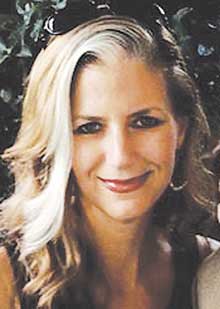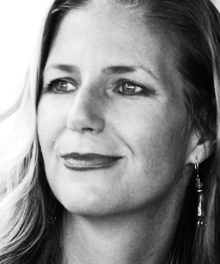 By Margaret Evans, Editor
By Margaret Evans, Editor
By the time you read this, at least two weeks will have passed since the massacre at Emanuel AME Church in Charleston. As I write, it’s been about 10 days, and my fingers tremble and hesitate over the keyboard.
I worry that anything I say today will be irrelevant by tomorrow . . . even more so three days from now, when this paper is published. I’ve got a bad case of emotional whiplash, and I don’t trust myself to feel the same way from one minute to the next.
But it wasn’t like that at first, was it? In those first few days of the Mother Emanuel tragedy, I felt myself possessed of a razor-sharp clarity . . . an almost supernatural vision. I think lots of us did. This unimaginably terrible thing had happened, followed by this unimaginably beautiful thing – the families of the victims said “we forgive you” – and we all knew we had witnessed something profound . . . maybe even prophetic. Something holy had happened in the Holy City.
And this holy thing – this wondrous forgiving of the unforgivable – pierced our hearts and moved us to action. In an organic groundswell of biracial, bipartisan sentiment, we quickly began discussions about removing the Confederate flag from statehouse grounds. Those who had been die-hard flag supporters changed their minds. Those who’d always been anti-flag welcomed them into the fold, without clucking or recriminating. Those of us who’d never thought much about the flag at all knew we no longer had that luxury. It was exhilarating to move forward together like this – South Carolinians of all races and political persuasions – on what felt like a tidal wave of divinely inspired love. That the consensus was reached so quickly – if still informally – felt providential, especially considering the contentious debate that had long swirled around this symbol.
In short, it felt like a miracle. In light of what the families in Charleston had just endured – and the bright hope they’d given us all – it also felt like the least we could do. A big, small thing.
There were the usual calls for a “conversation about race.” But this time, it was different. This time – because of the nature and magnitude of the tragedy, and the remarkable response of the families – we were ready to have it. As President Obama pointed out later, in his unforgettable eulogy for Sen. Clementa Pinckney, we saw “a thoughtful introspection and self-examination that we so rarely see in public life.” People wanted not just to talk, but to listen. Not just to convict, but to repent. This was something new. This, too, felt like a miracle.
But soon, the world came rushing back in, with all its . . . worldliness. God may work in mysterious ways, but we don’t. We humans are highly predictable. Textbook, really. We’ll rise to the occasion now and again, but we don’t stay risen for long. Not all at the same time, anyway.
Arguments about the Confederate flag broke out all over social media, and it was ugly. Reading the comments on the Facebook page of Beaufort’s senator Tom Davis – who took a stand, early on, that the flag should come down – was like wading into a sewer.
In the national media, some pundits couldn’t accept what was happening in Charleston. Where was the outrage? Where was the racial unrest? Where were the riots? Even as some praised Charleston for its demonstration of grace and unity, others seemed flummoxed . . . almost disappointed.
If I weren’t trying to take the high road – actively suppressing my snark reflex – I might suggest that social harmony isn’t good for ratings after the first day.
But I am trying to go snark-less, in honor of the Charleston nine, and that comment’s not entirely fair, anyway. In truth, people all over the country have just been trying to make sense of this tragedy the best they know how. For many good and sincere people, the absence of outrage – or its quick dissipation, anyway – feels morally wrong, impossible to bear. They can’t let go of their anger – and they don’t want others too, either – because to do so, they believe, is to dishonor these victims . . . to accept their tragic deaths as somehow part of “God’s plan.”
I have learned it’s not wise to write about Christianity here – not my own, anyway – but I think it’s appropriate and even necessary to write about the Christianity practiced by the people of Emanuel AME Church. For only through the lens of their faith can we make any sense of their story, or find meaning there, and I think we owe them that. (We talk a lot about empathy these days – about feeling others’ pain – but we don’t always make an honest effort to see through others’ eyes. We must.) It is because of their Christian faith that the Emanuel AME families were able to forgive Dylann Roof so readily. And if they appear to have a found a peace we can’t all comprehend – a peace that literally passes understanding – that, too, is because of their Christian faith.
While watching the funeral of Rev. Pinckney on CNN last Friday, I saw a newswoman interviewing a minister outside. He told her that violence had been avoided in Charleston because of the grace and forgiveness displayed by the victims’ families. The newswoman seemed agitated by that line of thought . . . said the families had every right to be angry, that we shouldn’t be trying to “manage their emotions.”
The minister replied calmly (and I paraphrase): They do feel angry. Of course they do. But anger’s just a feeling. Remember, faith is not a feeling, it’s a decision. These people made a decision to put their faith out front, and that means forgiving.
The newswoman looked perplexed. I don’t think she got it. And I get that.
Christianity is a controversial topic these days, and frankly, it always has been. From the very beginning, the followers of Jesus have been confounding the world – sometimes, because their behavior runs so counter to the ways of world . . . often times because it doesn’t. Christians prick the world’s conscience when they’re doing it right and reap the world’s scorn when they aren’t – and either way, they seem a little crazy and woo-woo to many folks in this postmodern era, when scientism is the only “religion” not in decline.
And so it has been a strange and marvelous thing – especially for those conflicted about Christianity, which includes plenty of us Christians – to see this example of full-blown faithfulness . . . to witness the actual “practice” of Christianity in all its counter-cultural, counter-intuitive, supernatural glory . . . and the power that practice has unleashed. The power to forgive the unforgivable, to sustain the unsustainable, to reconcile the irreconcilable. The power to mend the broken, to find beauty in suffering, to bring new life from death.
There are those who will not – who simply cannot – accept this paradox, which is the mystifying heartbeat of the Christian faith. And for those people, I fear there will be no peace. When they think of what happened at Emanuel AME Church, there will only be outrage, anger and sorrow. I honor their passion and their stoicism – I find it courageous – and I wish them well.
We all must stumble forward in this life on the path that beckons to us, the one that best steadies our feet, that feels true and right. We cannot believe what we cannot believe, and some people must see to believe.
It is another frustrating paradox of the Christian faith that one must believe in order to see. Through the lens of that faith, I’ve been witnessing miracles in South Carolina since that awful event on June 17th, 2015. And despite the world’s best efforts – and those efforts are always manifold – I believe the miracles will continue, if we let them.
My fellow Christian, my president, said it so well when he called on us all to “express God’s grace” as we move forward. My favorite part of his eloquent eulogy – the part I most needed to hear, anyway – was this:
“It would be a refutation of the forgiveness expressed by those families if we merely slipped into old habits, whereby those who disagree with us are not merely wrong but bad; where we shout instead of listen; where we barricade ourselves behind preconceived notions or well-practiced cynicism.”
We can do this, y’all. Despite our many differences and divisions, and some are deep, we can learn to treat each other with dignity, respect, and even love. Yes, it will be hard – we might need another miracle – but the Charleston nine deserve our best efforts. And their families have shown us that anything’s possible.
We were blind, but now we see. So what are we going to do?






